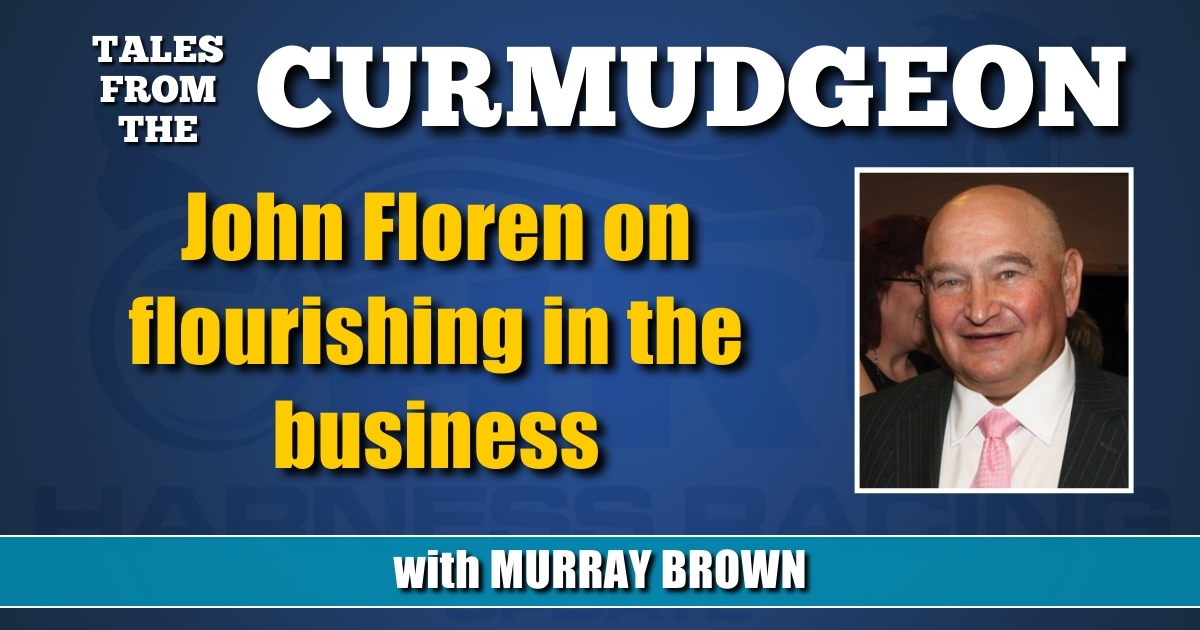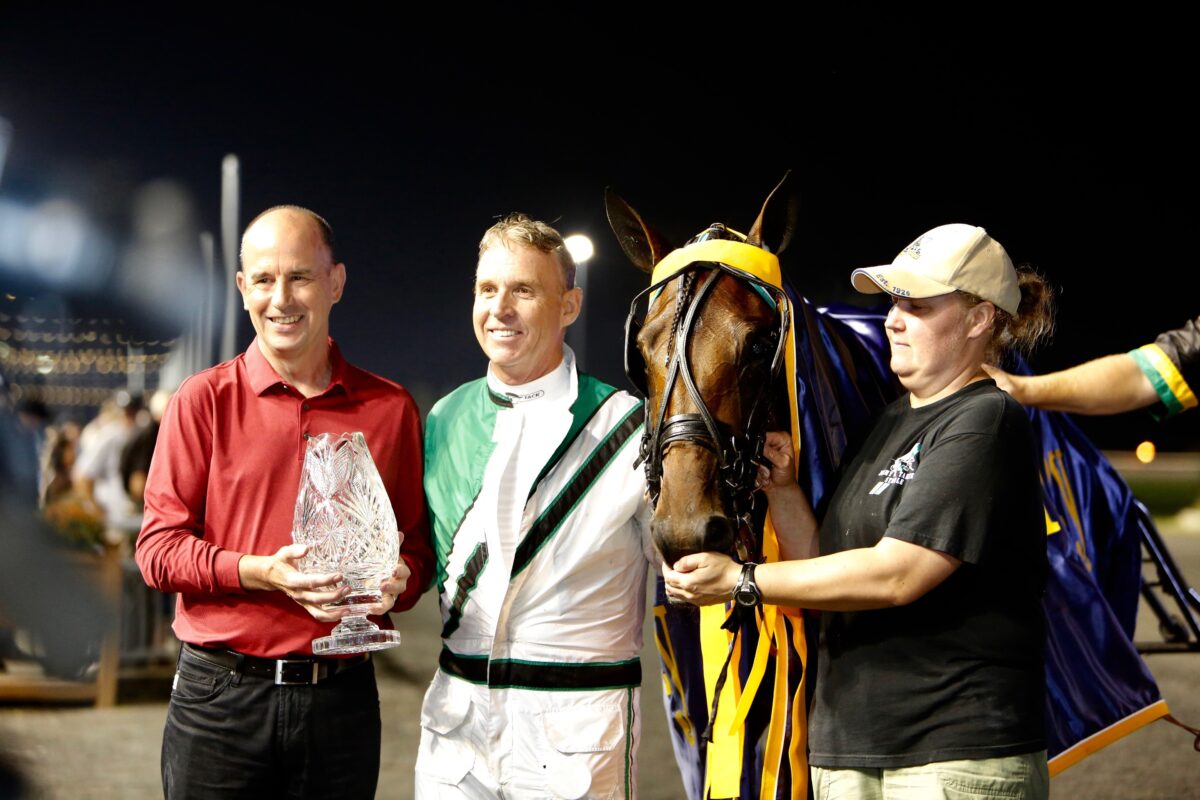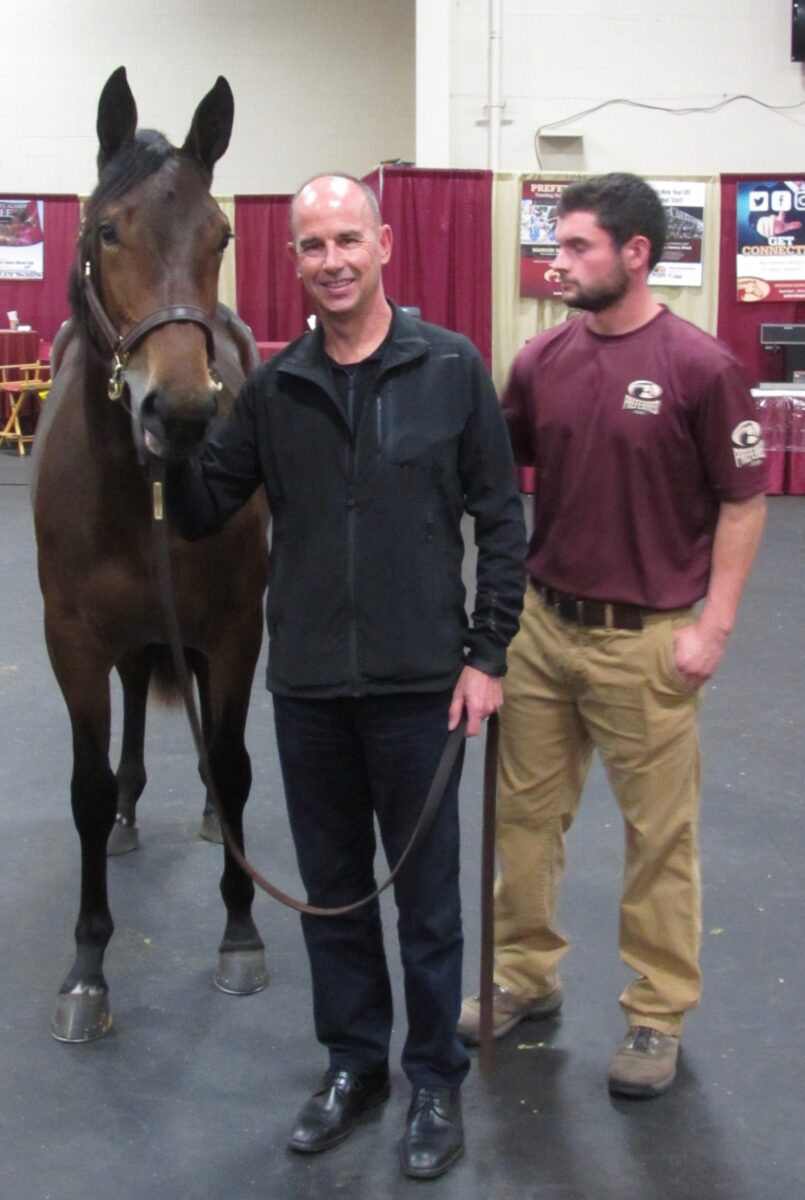John Floren on flourishing in the business
The man behind Coyote Wynd Farms talks about finding success at both racing and breeding.
by Murray Brown
Coyote Wynd Farms is the nom de course for John Floren, his wife Sherry and his daughters Kendra and Emily.
“We are all involved in it as we are in most areas that concern any one of us,” said John. “But I suppose it’s more my personal bailiwick. It certainly hasn’t been my primary means of making a living, but I’ve managed to do reasonably well both in breeding for the market and in racing at quality levels.”
As you say it hasn’t been your primary means of making a living, what is?
“I’m now actually retired, but I was the CEO of Methanex which is the world’s largest producer of Methanol. I’m still a director of Imperial Oil as well as West Fraser Timber. I also serve on the advisory council to the General of the Royal Canadian Air Force. I wouldn’t describe my involvement in harness racing as a hobby, because it most decidedly is not that. We treat it as a business, but it is a business which often has its personal rewards. I love the horses. I try to go to the races as often as I am able. I do visit Peninsula Farms where all my breeding stock is boarded under the great stewardship of Carter Duer and his family. I’ve also been at Spring Garden Ranch this week where I have some in training with Clark Beelby and Charlie Norris. Our goal is to breed, raise and occasionally race the very best trotters that we are capable of raising. That doesn’t necessarily mean that we are always successful in our goals, but I think that thus far we have done reasonably well. We have averaged over six figures with the yearlings we have bred and raised at public auction.”
How many horses do you have?
“Insofar as breeding stock is concerned, we have over 20 including broodmares, yearlings and suckling foals, both here and yet to arrive. We will have nine yearlings to sell at the Selected Sale this year. Our mares are a select group and we breed them to the very best trotting stallions available. I suppose we are growing. Last year we sold six yearlings and they brought $300,000, $210,000, $180,000, $150,000, $45,000 and $25,000. I expect that if the market stays good and the stars are in alignment that we might perhaps do somewhat better this year. I realize that breeding and raising horses can be a bit of a gamble, but it’s just like most areas of life, if you deal with quality and surround yourself with good trustworthy people you can skew the odds in your favor.”
What do you look for in additions to your broodmare band?
“I guess pretty much what everyone else who is looking to raise a good horse [looks for]. The first necessity is pedigree. Without a quality pedigree you are doomed. Then, of course, conformation. If you buy a poorly-conformed mare the chances of her reproducing any fault are increased. One area that I place a high priority on is temperament. I like an intelligent horse that has a kind disposition.”
How about your racing operation? How many horses do you have in training?
“We own all or portions of 20 head in training. They consist entirely of 2- and 3-year-old trotters, some of which will eventually join the broodmare band. Our yearling purchases are usually trotting fillies. Our two primary trainers are Clark Beelby and Jim Campbell. I’ve had horses with Clark for many years, dating to 1995. Jimmy has trained for us since 2018. We also own pieces of horses with Julie Miller, Tony Alagna and Charlie Norris. Julie and Tony bought yearlings from us and asked if we wanted to stay in for an interest. Of course, we jumped at the opportunity.”
How did all this begin and evolve?
“I suppose it began when we lived in Montreal and had a farm in St Lazare. The farm was close to one owned by Morris Feldman who was quite active in the game. He had several horses that he bred and raced primarily at Blue Bonnets, then called Hippodrome de Montreal. Morris became an advisor to us and helped to guide us in our first steps in the business. My wife, Sherry, worked in Moe Graif’s bookkeeping office at the track for a few years. Of course, we benefitted from exposure to a large panoply of horsemen and horse related experience. From there it just grew.”
Do you have a favorite track?
“The simple answer would probably be the one where we last had a winner. If I had to pick just one it would be Mohawk. It’s our home track and it’s just a short drive to get there. I absolutely love going to the races especially when one of our horses is in to race. The only thing better than watching one of your horses race is seeing it win. After living in eight places in my adult life, we now live in Oakville which is just a short drive from Mohawk. Of course, I love to go to The Meadowlands and there is nothing quite like a beautiful fall day at The Red Mile. I love to drive. If one of our horses is in to race, I just get in the car and go to wherever its racing.”
What is your favorite horse?
“Without a doubt, The Ice Dutchess. We bought her at the 2017 Harrisburg sale for $320,000. She raced for us and earned $774,029. She is now, of course, a broodmare. Her first two foals brought $150,000 and $300,000. Her third foal is a yearling colt by Walner. There is an interesting story that goes with her acquisition. At the sale in which we bought her, we also sold the highest priced yearling colt for the same $320,000. That has to be some kind of record. I don’t know of any sale where the highest priced sold yearling and the highest priced bought involved the same person for the same price.”


















